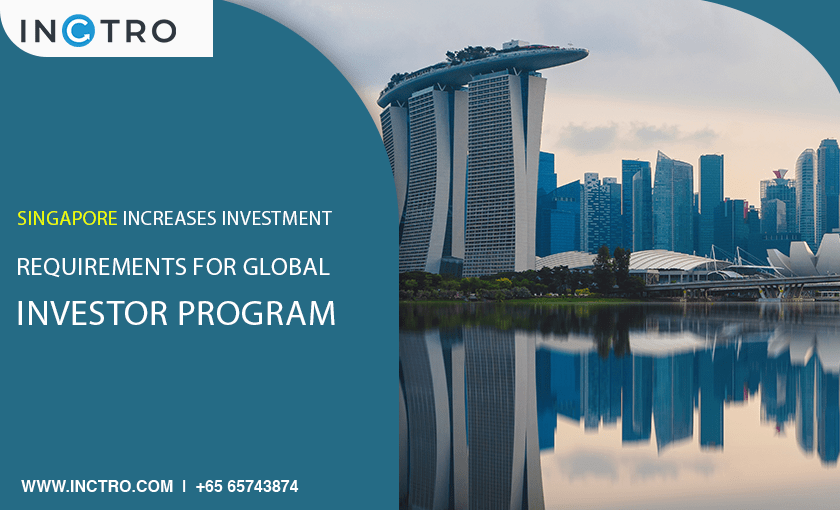- March 6, 2023
- Posted by: Vivek Sharma
- Category: Knowledge Base

Singapore’s Global Investor Program (GIP) has been a popular route for foreign investors and their families to obtain permanent residency since its inception in 2004. The program aims to attract foreign investors who can make a significant economic impact in Singapore and support the local start-up ecosystem and the broader financial sector.
However, the Economic Development Board (EDB), a statutory board under the Ministry of Trade responsible for executing strategies that sustain Singapore’s status as a leading global hub for investment and business, has recently announced several changes to the GIP scheme. These changes include raising the required minimum investment, changing the conditions of investors’ re-entry permits, and increasing the number of local employees that investors must hire.
New Investment Requirements for GIP Scheme
To qualify for the GIP scheme, applicants must apply to one of three investment options:
- Invest at least S$2.5 million in a new business entity or an expanding existing entity in Singapore.
- Invest at least S$2.5 million in an EDB-registered GIP fund that invests in Singaporean businesses.
- Invest at least S$2.5 million in a new or existing Singapore-based family office having assets under management of at least S$200 million.
The EDB has now increased the required investments for some of the investment options for applicants of the Global Investor Program.
Applicants who choose option A must now demonstrate an investment of at least S$10 million in a new or existing business in Singapore. Further, the requirement for a total business expenditure of S$2 million has been removed.
Applicants choosing option B must invest at least S$25 million in a GIP-selected fund.
Under the new changes, investors that choose option C are now required to establish a Singapore-based family office with assets under management of at least S$200 million. At least S$50 million must be deployed in any of the four investment categories.
New Conditions for the Renewal of Re-entry Permits
Before the amendments, a successful Global Investor Program candidate would be issued a re-entry permit for five years upon the approval of their permanent residence. The renewal criteria involved hiring a minimum of 10 people, with at least half being Singaporeans by year five of the investors’ permanent residency status, and incurring at least S$2 million in business costs.
Investors choosing option A must now employ at least 30 employees, of which at least 15 must be Singaporean citizens. Of these, ten must be incremental hires.
For those investing in GIP-selected funds, the investor must maintain their investment in the fund to obtain their re-entry permit.
Finally, for investment option C, investors must hire at least five family office professionals, including at least three Singaporeans, and maintain at least S$50 million in any of the four investment categories for five years after obtaining their permanent resident status.
Conclusion
The GIP scheme remains a popular route for foreign investors and their families to obtain permanent residency status in Singapore. The recent changes aim to attract “top-tier investors” who can make a significant economic impact in Singapore. This change is focused on creating high-value jobs for Singaporeans and supporting the local start-up ecosystem and financial sector. It aims for foreign investors to contribute more to Singapore’s growth and development.
